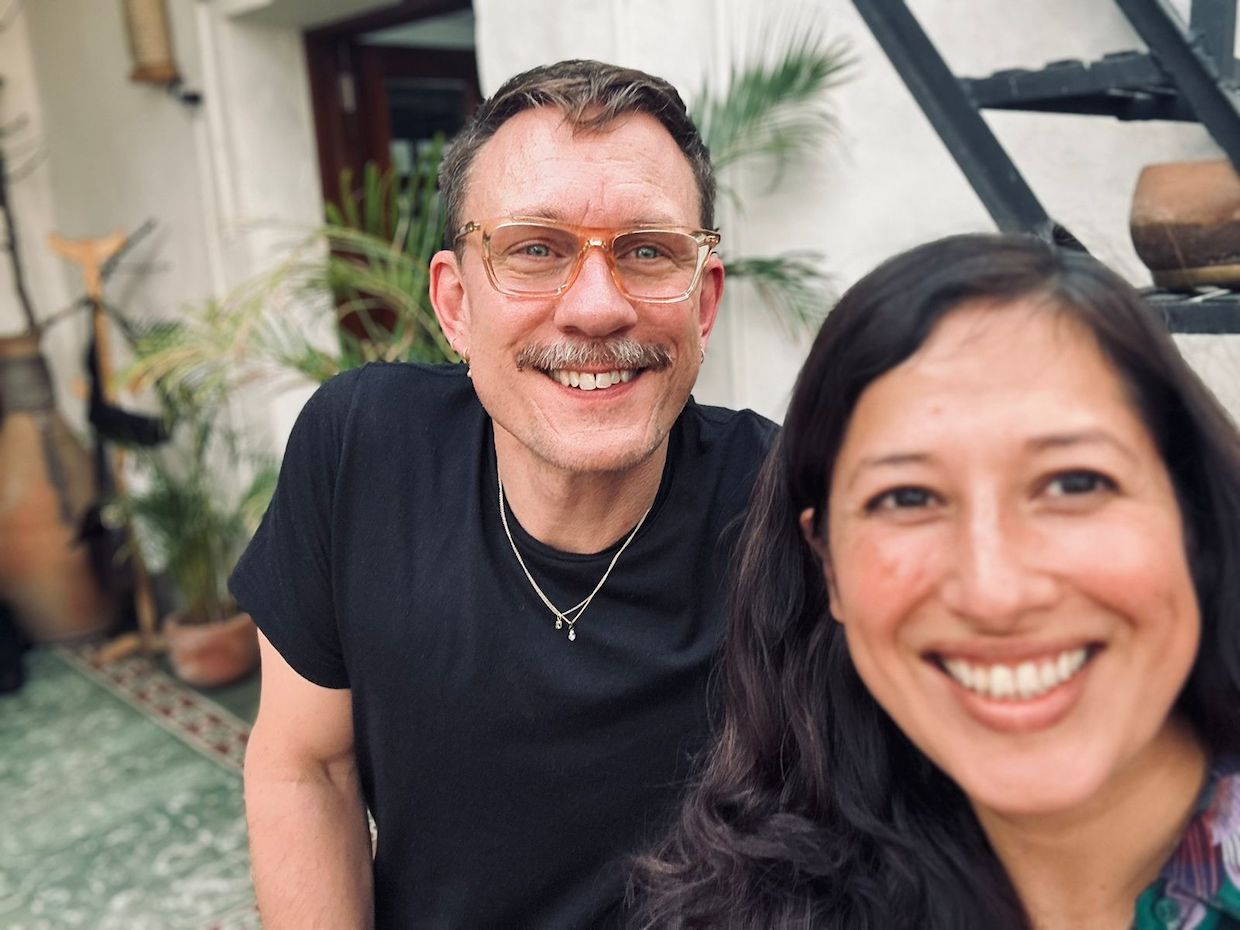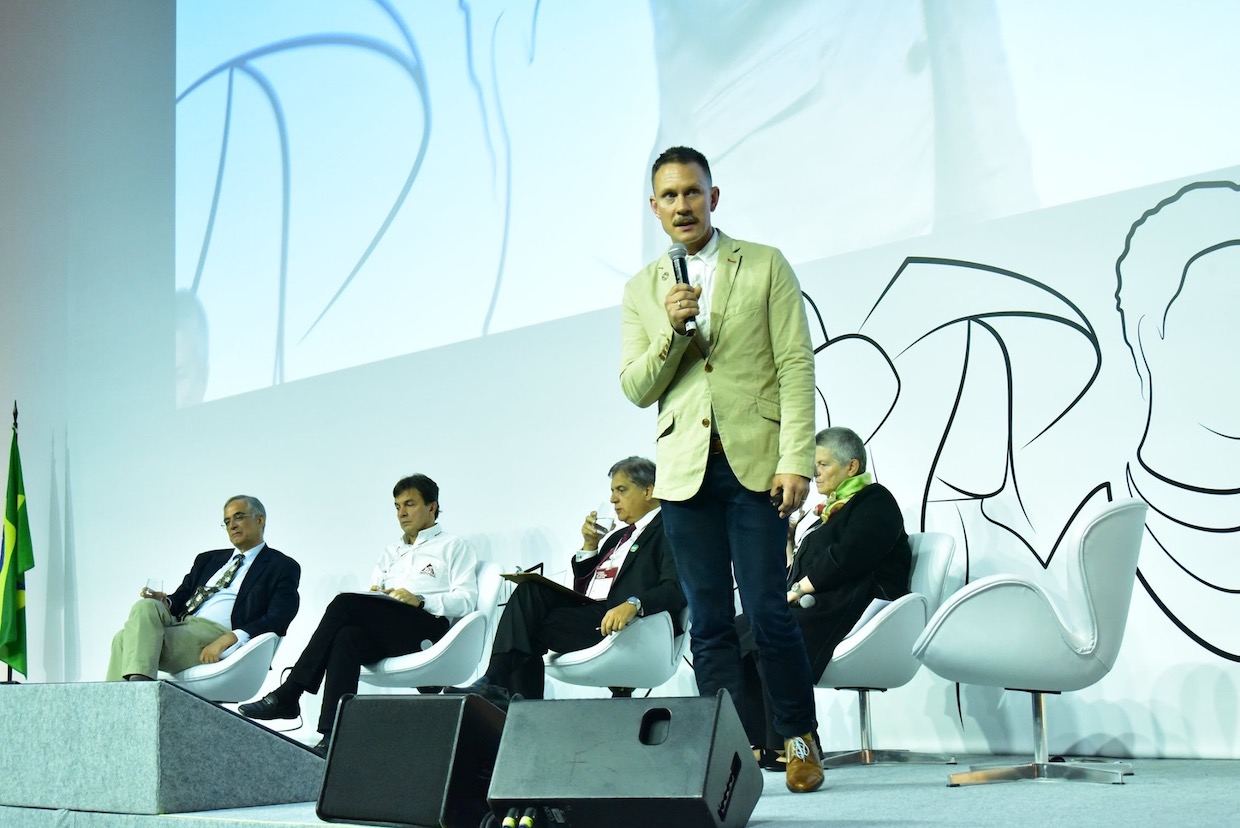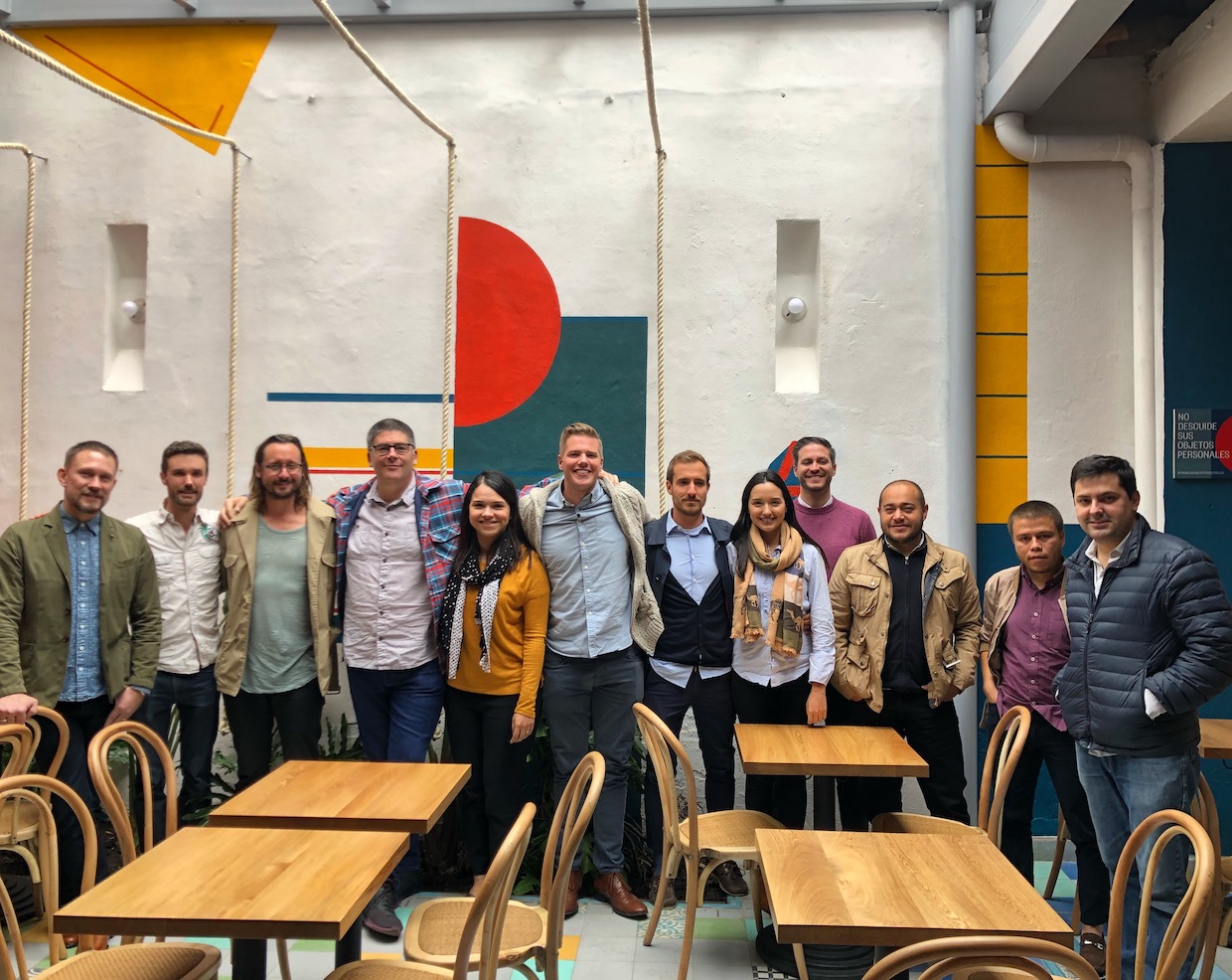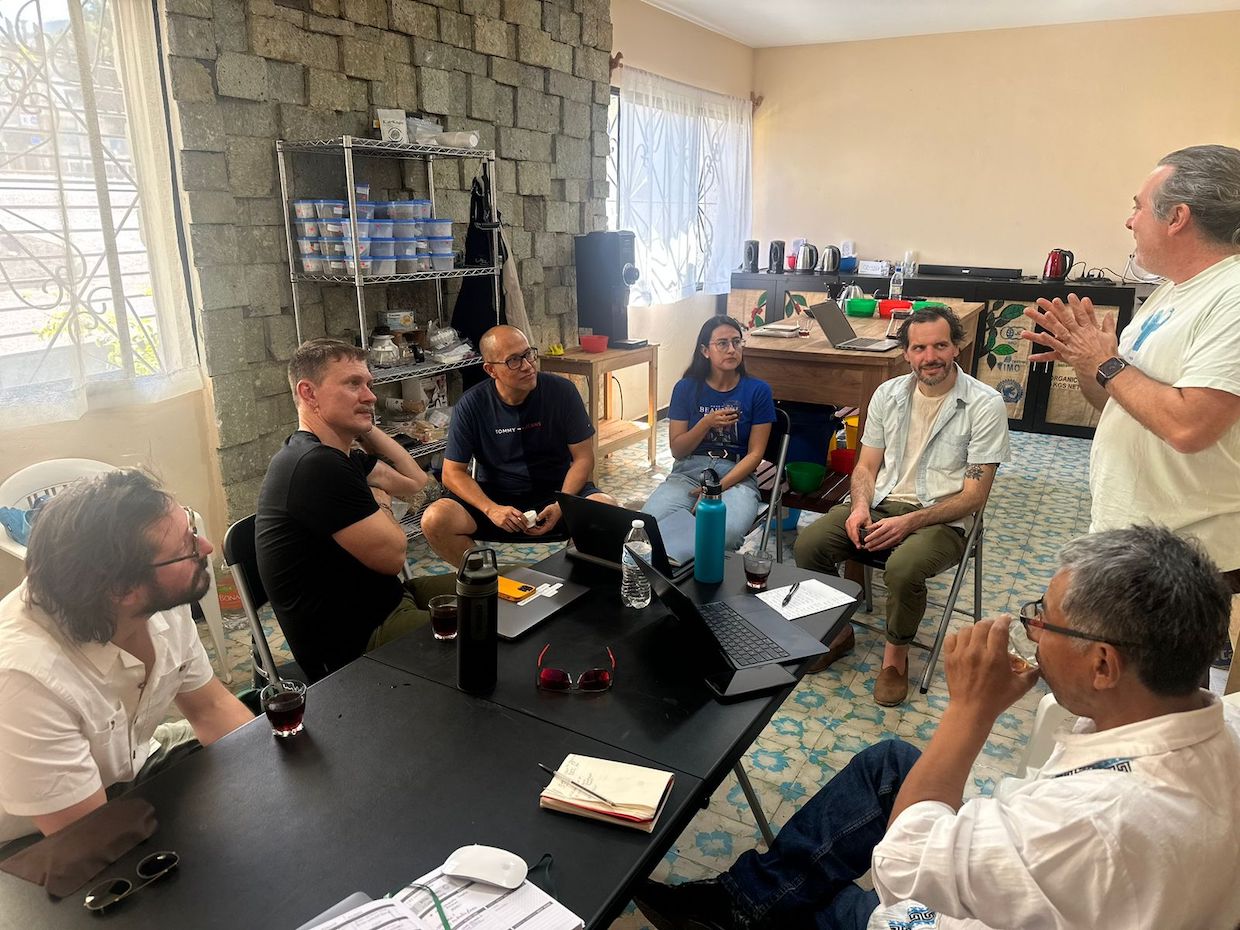With a remarkable 30 years spent in and around the coffee business, Chad Trewick is embracing his next adventure as head of green coffee at Colombia-based roaster, retailer and green coffee trading company Azahar Coffee.
The first two decades of Trewick’s career were spent at a single company, Minnesota-based Caribou Coffee, where he started working as a barista and eventually became the company’s senior director of coffee.
It was as a green coffee buyer at Caribou that Trewick had an experience that would ultimately redefine his career interests, which in recent years have been focused on green coffee prices and the concept of equitable remuneration for green coffee.
Trewick was visiting a coffee producer with whom Caribou had a purchasing relationship in El Paraíso valley in Guatemala. When Trewick asked one of the sons of the farm owner why he had not yet pursued his dreams to study and travel abroad, the answer was, in short: low prices.
“He was right about the prices. They had been stupidly low because they were pegged to the volatile commodities market price, which had pretty much bottomed out below the cost to produce coffee,” Trewick recently told DCN. “That day onward while I had that job, I sat with the fact that what I did for a living as a coffee buyer impacted the lives of my partners in a profound, and not necessarily always positive, way.”
Afterward, Trewick began to focus his efforts at Caribou more on equitable, sustainable partnerships with producers before he left the company and briefly worked with the financial services agency StoneX (formerly INTL FCStone) while launching his own consultancy, Reciprocafé, in 2014.
In 2017, Trewick connected with Emory University economist Peter Roberts, founder of the Specialty Coffee Transaction Guide, which exists in part to provide coffee buyers and producers alike a price discovery mechanism for high-quality coffees that is not directly tied to the commodities (or C market) prices.
In the years that followed, Trewick became an instrumental figure in growing the guide’s participation among roasters and traders in the coffee industry.
“Over the years of publishing the Guide our community learned how pricing for differentiated and specialty coffees is more — and less, in some cases — buffered from commodity market volatility,” Trewick told DCN. “We learned that there is already an established market for the fanciest green coffees that change hands and that those prices do not change much compared to lower qualities, which are tied to the commodity market and see very volatile price swings. But the most important work we did was tirelessly trying to get this information into the hands of coffee producers, so that they could begin to understand what a segment of the market was paying for the kinds of coffees they have to offer.”
[Side note: the 2022 Specialty Coffee Transaction Guide became publicly available in January.]
Trewick credits the Specialty Coffee Transaction Guide project with catapulting his understanding of coffee prices and the economics of coffee.
“Working within and around this issue of price brought me closer to all kinds of innovators and leaders in the coffee industry also grappling with how we paid for differentiated green coffees,” Trewick said. “Being in an academic environment instead of a business environment emboldened me to speak up more about what we were beginning to clearly see about coffee prices.”
One project Trewick bumped into through his work on prices was the Sustainable Coffee Buyers Guide, a currently nonprofit project developed by Tyler Youngblood and Vera Espíndola Rafael that is using real-world price data to improve consciousness among coffee buyers and sellers.
Youngblood and Rafael are also key figures in Azahar Coffee, the progressive, price-conscious green and roasted coffee company that Trewick just joined. Trewick described the company’s level of transparency surrounding pricing — and its real-world implications for the farmers from whom it sources coffee — as “game-changing.”
“I have a strong personal belief that the more we know and talk as an industry about what coffee prices mean to those who work in the countries where it is grown, the more we will understand the need to improve those economics,” Trewick said. “My guess is it will probably not sit well with many companies to understand that, year after year, they are prolonging a cycle of poverty with the way they price their green coffees. That is the uncomfortable edge of where these conversations need to go.”
We recently caught up with Trewick, a Wisconsin native who now calls Minneapolis home, as part of our Three Questions series. (Note: answers may have been edited for clarity or brevity.)
DCN: What about coffee inspires you most?
CT: I have always loved the ritual of drinking a cup of coffee, [ever] since I would drink it all milk-and-sugared-up with my grandma as a kid. It becomes, for so many of us, a beloved ritual in our days. It is a cornerstone of meetups and times we share with friends and loved ones. Coffee can be anything from that quick cup we need on a drive and buy at a gas station to a beautiful cup of a specific variety and process that just sings with flavors and romance in the cup. But behind all of that, no matter what kind of coffee it is, making the beverage possible are millions of producers whose livelihoods depend on coffee for survival. So, when we look for it, coffee can be a bridge or a connection between different lands and to the people who make it happen. And not just producers… So many souls make their mark on coffee as it travels to our cups.
What about coffee troubles you most?
The way we apply value or price to “specialty” or differentiated coffees and remunerate producers too often fails to adequately consider the risk and work that they contribute. Green coffee prices that producers receive barely cover the cost to produce anything like a living income, in most cases.
If we look at it over a period of time, the percentage of coffee’s global value that stays in countries where it is grown has decreased from around 30% in the 1990s to around 10% today all while prices for green coffee stayed pretty flat or went down, until the most recent couple of years when we saw a rally and heightened volatility in the commodity market.
That the commodity market is used to price green coffees that our industry — again, “specialty” — needs defies all logic. These are not commodity coffees. Why price them as such? We expect, [or] demand, certain physical and flavor attributes that make these coffees unique — the opposite of commodity, really. And while prices for green coffee have been pretty stagnant over the last decades, a multibillion dollar industry that requires this “specialty” green coffee has exploded and made many, many people on that end of the value stream a lot of money.
On a macro level, a fundamental reason for this growing earning potential gap is that the industry was able to buy green coffee as commodity at low prices and sell roasted coffee as “specialty,” adding value by offering coffee in innovative and unique ways in fancy cafes globally.
The longer it takes our industry to see the urgency behind efforts to adequately pay producers for their risks and contributions to the green coffees we need, the more diversity of flavors we will lose.
Today, to be viable, a producer has to embrace more technified and “efficient” production methods, just to have a chance at making the numbers work out for them under current economics. These more industrialized ways of farming coffee simply are not capable of preserving the flavors we have come to love, appreciate, and celebrate as an industry. We will lose a lot as coffee production is forced to exit certain geographies due to the financial needs of communities being unmet by our industry’s failure to reward and recognize what we purportedly value.
What would you be doing if it weren’t for coffee?
This is an easy one for me — and maybe silly or frivolous, too. I would be a “nose,” or perfumer, in the fragrance industry.
Once, a long time ago, I had the opportunity to spend a day with the head perfumer for a well-known global brand. If I had not already been smitten by coffee by then I might have pursued a different path! I am obsessed with smells. I cannot imagine moving through this world without my sense of smell. The good, the bad, all of it!
When I was a kid, my mom would often have to say to me, “stop smelling your hands!” Smells transport me. When I smell birchwood smoke I immediately recall super specific childhood memories and camping adventures with a beloved family friend. I can smell a fragrance on someone and be overwhelmed with a memory of a person in my life who wears, or wore, the same. I have bottles of fragrances I refuse to use the rest of because I feel I need to hold on to them so that I can revisit the memories they flood me with.
My collection is a bit out of control by now. My husband and I have been talking lately about needing to buy a display case!
Is there someone in coffee who inspires you? Nominate that person for DCN’s ongoing “Three Questions” feature.
Nick Brown
Nick Brown is the editor of Daily Coffee News by Roast Magazine.










Comment